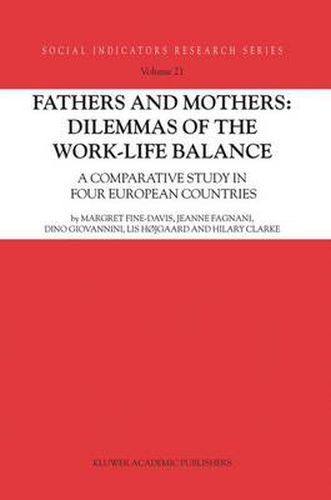Readings Newsletter
Become a Readings Member to make your shopping experience even easier.
Sign in or sign up for free!
You’re not far away from qualifying for FREE standard shipping within Australia
You’ve qualified for FREE standard shipping within Australia
The cart is loading…






This title is printed to order. This book may have been self-published. If so, we cannot guarantee the quality of the content. In the main most books will have gone through the editing process however some may not. We therefore suggest that you be aware of this before ordering this book. If in doubt check either the author or publisher’s details as we are unable to accept any returns unless they are faulty. Please contact us if you have any questions.
At the risk of sounding frivolous, there is a good case to be made for the argument that women constitute the revolutionary force behind contemporary social and economic transformation. It is in large part the changing role of women that explains the new household structure, our altered demographic behaviour, the growth of the service economy and, as a consequence, the new dilemmas that the advanced societies face. Most European countries have failed to adapt adequately to the novel challenges and the result is an increasingly serious disequilibrium. Women explicitly desire economic independence and the societal collective, too, needs to maximise female employment. And yet, this runs up against severe incompatibility problems that then result in very low birth rates. Our aging societies need more kids, yet fertility levels are often only half of what citizens define as their desired number of children. No matter what happens in the next decade, we are doomed to have exceedingly small cohorts that, in turn, must shoulder the massive burden of supporting a retired baby-boom generation. Hence it is tantamount that tomorrow’s adults be maximally productive and, yet, the typical EU member state invests very little in its children and families.
$9.00 standard shipping within Australia
FREE standard shipping within Australia for orders over $100.00
Express & International shipping calculated at checkout
This title is printed to order. This book may have been self-published. If so, we cannot guarantee the quality of the content. In the main most books will have gone through the editing process however some may not. We therefore suggest that you be aware of this before ordering this book. If in doubt check either the author or publisher’s details as we are unable to accept any returns unless they are faulty. Please contact us if you have any questions.
At the risk of sounding frivolous, there is a good case to be made for the argument that women constitute the revolutionary force behind contemporary social and economic transformation. It is in large part the changing role of women that explains the new household structure, our altered demographic behaviour, the growth of the service economy and, as a consequence, the new dilemmas that the advanced societies face. Most European countries have failed to adapt adequately to the novel challenges and the result is an increasingly serious disequilibrium. Women explicitly desire economic independence and the societal collective, too, needs to maximise female employment. And yet, this runs up against severe incompatibility problems that then result in very low birth rates. Our aging societies need more kids, yet fertility levels are often only half of what citizens define as their desired number of children. No matter what happens in the next decade, we are doomed to have exceedingly small cohorts that, in turn, must shoulder the massive burden of supporting a retired baby-boom generation. Hence it is tantamount that tomorrow’s adults be maximally productive and, yet, the typical EU member state invests very little in its children and families.